Rexel Steel Furniture
Manufacturer of quality steel furniture in Dubai - Steel Desks, Steel Filing Cabinets, Steel Cupboards, Steel Lockers, Steel School Furniture etc...
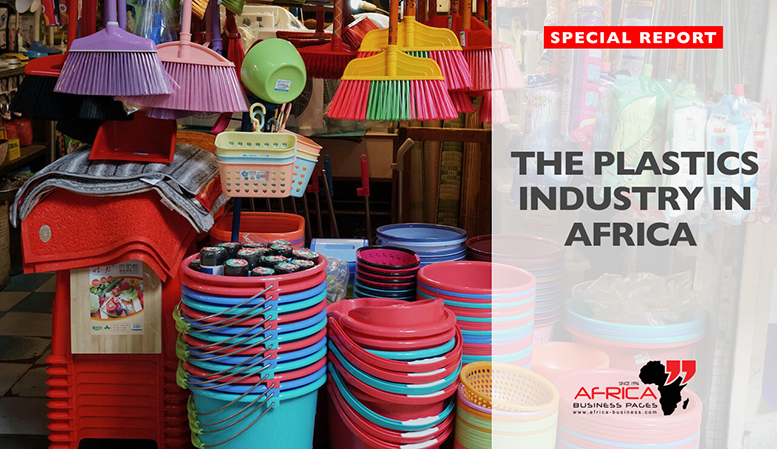
Africa has become a key player in the international plastics and packaging industry where plastic goods and expertise are in high demand. Africa's plastic industry is reporting high growth rates as demand for plastic goods and machinery in Africa registers a steady growth.
Africa's overall economy is currently on a growth path. Many countries in Africa have experienced several years of strong economic growth (ranging from 8-12% in 2020) and it is now one of the fastest growing markets for plastic goods and machinery in the world. A growing economy, a population of over 680 million and the potential for significant long-term growth have made the African continent a priority market for many international companies. Some of the areas identified as opportunities for international companies include plastics production machinery (PME) as well as plastics material resins (PMR). Not to mention the high demand for plastic goods that has been growing throughout Africa.
However, on the downside, Africa is not an easy place to do business. International companies complain of high levels of bureaucracy and corruption. The World Bank's Ease of Doing Business survey ranks most African countries quite poorly. Having said that, many entrepreneurs often see an opportunity where others see hurdles.
As expected, the growing African economy is spurring growth in the continent's plastics industry.
According to industry reports, during the past six years the use of plastics in Africa has grown by an astounding 150%, at a compound average growth rate (CAGR) of approximately 8.7 per cent. Imports of plastic into Africa have grown between 23% and 41% during this time. In a recent conference presentation, analysts predicted that the use of plastics in East Africa alone is expected to treble in the next five years. And there is potential for much more growth. Plastics consumption per capita in Kenya, for instance was just 10 kg in 2004 and it is expected to increase to 40 kg by 2025, which is still very low compared to many other countries in other parts of Africa.
Although these predictions look rosy, there are challenges facing the Africa plastics industry. These include:
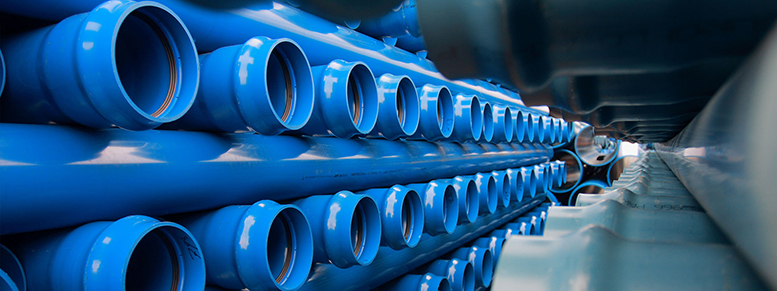
Demand for consumer plastic products has been growing at an average rate of 10-20% annually. Kenya's consumer spending has been spurred largely due to sweeping economic reforms that have led an overall economic development in many sectors and subsequently improved disposable incomes of the rising middle-class in Kenya. As a result, imports of plastic materials and resins in to Kenya has been registering a steady growth in the last two years. Analysts believe that in the coming years demand for plastic and packaging goods and machinery will further grow as Kenya's enterprising business community embarks on strengthening the country's manufacturing base by importing machinery and raw materials to set up manufacturing plants in Kenya to meet the rising demand for plastic and packaging solutions in East Africa.
Kenya's status as the regional business and distribution hub of Sub-Saharan Africa region will further help the country to boost its growing plastics and packaging industry.
Some notable players in the plastics and packaging industry in Kenya include:
Being a landlocked country, Uganda imports a majority of its plastic and packaging requirements from regional and international suppliers and has emerged as a major importer of plastics in the East Africa region. Major imports include plastic moulded furniture, plastic house wares, woven sacks, bags, ropes, plastic shoes, PVC pipes/fittings/electrical fittings, plumbing and drainage systems, plastic building materials, toothbrushes & plastics household products.
Kampala, the business centre of Uganda, has become a centre for packaging industry as more and more manufacturing units are being set up in and around the city to meet the rising demand for plastic goods like melamine utensils, plastic household foods, plastic bags, toothbrushes etc.
One of the largest players in the plastics industry in Uganda is Nice House of Plastics. Nice House of Plastics Limited was established in 1970 as a company manufacturing toothbrushes. Today the company is the leading manufacturer of plastic items, a wide range of writing instruments and toothbrushes in Uganda. Nice House of Plastics has a first-class, fully integrated production process using modern technology and machinery from Germany resulting in high quality and affordable products.
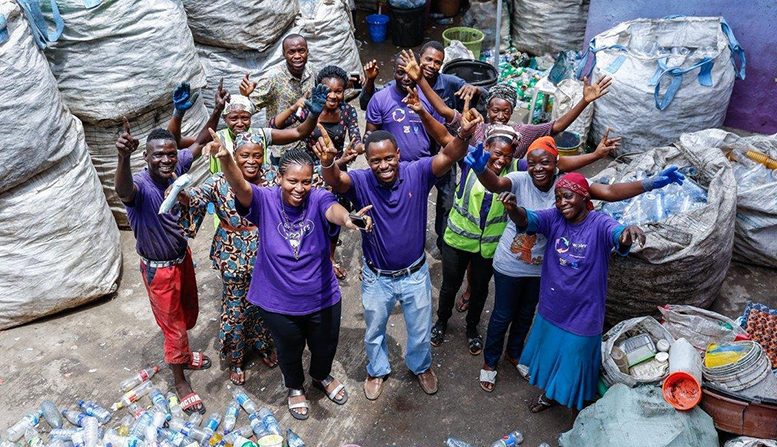
Nice House of Plastics is part of the A.K. Plastics (U) Limited with its deep-rooted origins had a humble beginning with a single laundry soap production line installed in 1986. Today, close to just three decades later, it is a conglomerate of varied business interests ranging from manufacturing to transport and logistics to property development within Uganda and spanning across the Great Lakes region. Employing in excess of 7,000 individuals who share a common vision, A.K. Plastics (U) Limited delivers products and services at affordable prices to the people of the East Africa region and Sub Saharan Africa.
In the East Africa region, one of the largest markets for plastics and packaging goods is Tanzania. The country has been importing plastic goods and machinery from al across the world in increasing quantities over the last five years and has emerged as a lucrative market for plastic goods in the region. Tanzania's plastic imports include plastics consumer items, writing instruments, rope & twines, plastics & metal spectacle frames, strainers, laminated & non laminated packaging material, bio-medical products, kitchenware, woven sacks & bags, pet preforms, gift & novelties & other plastic products.
In fact some enterprising companies in Tanzania are turning waste plastic bottles into Coronavirus face shields and meeting the rising demand for face shields in East Africa.
Ethiopia has also emerged as a major importer of plastic goods and machinery in recent times. Traders and wholesalers in Ethiopia have been importing a wide variety of plastic goods and machinery including moulds for plastics, GI Pipes, Dies & Moulds for Plastic Films, Plastic Packaging material, Kitchen Plastic Products, Pipes & Fittings – to name a few. The sheer size of the market makes Ethiopia an attractive market in Africa for the plastics industry: Ethiopia is Africa's tenth largest country with a population of approximately 80 million people.
Ethiopia adopted a free market economic policy in 1992, and in line with this has promoted private investment. As a result, the plastics industry in Ethiopia has been growing at a rapid pace as demand for plastic products in the local market has been registering a steady growth since 2015. Several foreign companies have been entering into joint-venture operations with Ethiopian partners to set up plastic manufacturing plants in Addis Ababa. Ethiopia has a reasonably good infrastructure by African standards and boasts of large pool of skilled labour. The cost of labour is very low in Ethiopia with a wage of US$1 a day for unskilled labor and average monthly salary of US$120 for a fresh graduate.
Recently, an Indian and Mauritian joint venture in Ethiopia started production of fuel from waste plastics using new technology. The company has built a factory on 15,000 square meters in Akaki/Sebeta sub-city and the fuels, which can be produced from waste plastics, are being used for various applications including as jet fuel.
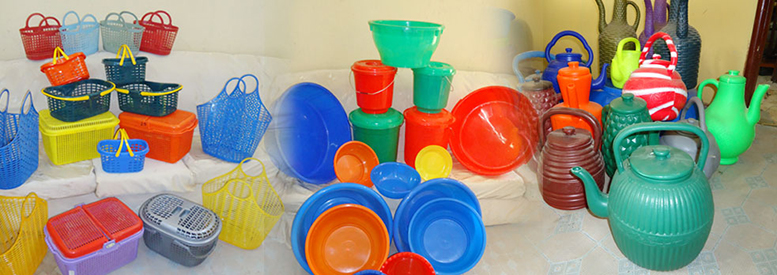
The company uses Indian scientist Professor Ms Alka Umesh Zadgaonkare’s innovation, which turns all plastic materials (PVC) into fuel within four hours of processing. From similar weight of waste plastics, the technology enables the company to produce the same/equivalent weight of fuel which can be used for various applications. Using this technology, India is saving foreign currency of approximately US$3.8 billion every year which it used to spend for importing fuel produced from crude oil.
With the objective of replicating India’s experience in other African countries, the joint venture is also on the way of installing fuel generating plants in Ghana and Mauritius. It is also negotiating with other countries such as Tunisia.
Such investment is believed to cut environmental pollution and cleans towns and cities like Addis Ababa free from plastic wastes such as plastic bags. It is also expected to encourage people who are engaged in dry waste cleaning services by giving them additional income from collecting these wastes and selling it to the company.
Plastic being non biodegradable, is accumulated in the environment and if not properly managed will lead to the creation of mountains of waste. Being highly detrimental to public health, causing high rates of pollution, making land inhabitable and contaminating the soil, which leads to soil degradation, are among the hazards caused by plastic waste.
More than 200 million tons of plastic is produced worldwide each year, but mechanisms are not designed for its proper disposal.
Eversice Mozambique’s plastics factories were privatized in 1995 and 1996, there has been a flurry of activity in the sector. New manufacturing plants have been mushrooming around the country to meet the demand for plastic goods for the local and regional markets. With a huge domestic market, Mozambique is indeed an attractive market for plastics and packaging industry. Inexpensive plastic products of all kinds enjoy strong consumer demand in Mozambique and other regional markets. As a result, has emerged as a major importer of plastics production machinery (PME) as well as plastics material resins (PMR).
Undoubtedly, South Africa is one of the biggest players in the African market when it comes to the plastics and packaging sector. The South African plastics market is currently valued at approximately US$3 billion – which includes raw materials and products. South Africa accounts for 0.7% of the world market and per capita consumption of plastic is about 22 kg. Another salient feature of the South African plastics sector is that around 13 per cent of original plastic is recycled annually, mostly recovered as post consumer waste. This represent around 30% of actual packaging polymers produced.
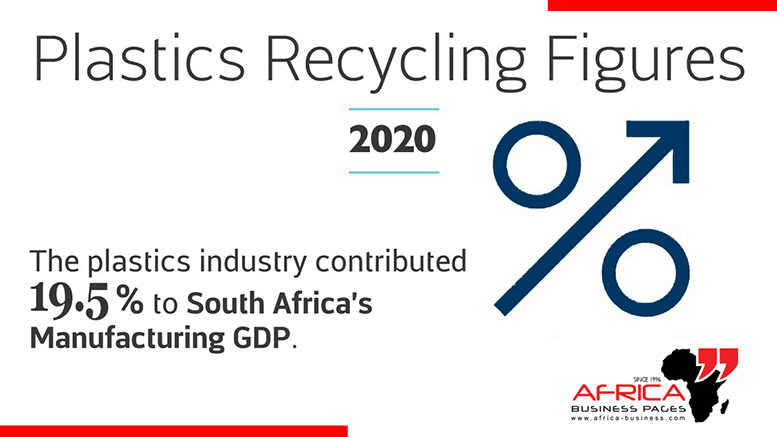
High demand for the conversion technologies like extruder, injection molding, blow molding, roto-moulding and thermoforming. Demands for products include film, sheet, packaging material, kitchenware, furniture, pipes, footwear and industrial parts. Being a developed country, plastics recycling and environmentally friendly plastics are considered important for the plastics industry in South Africa.
Previous NextManufacturer of quality steel furniture in Dubai - Steel Desks, Steel Filing Cabinets, Steel Cupboards, Steel Lockers, Steel School Furniture etc...
New Al Dhaid Furniture L.L.C. (NAD) offers a comprehensive range of home and office furniture and has emerged as a leading exporter to the African markets...
Ajmals has produced a special line of perfumes for the African markets. MARYAJ, a special range of budget-priced perfumes has already become popular with African customers...
Specialised supplier of kitchen equipment for hotels, restaurants and cafés. Seeking importers of kitchen equipment in Africa and buyers in African markets...
Everhot STAINLESS STEEL Water Heaters are much better than the conventional glass-lined water heaters as their inner tank is made from stainless steel...
Full range of Truck Chasis for all uses as well as standard and luxury buses and forklifts from 1 to 7 tons, with diesel, gasoline, LPG and battery operating systems...
One-stop source for all tractor and diesel engine parts in Dubai. Seeks business partners and wholesalers in Africa to further increase its client base in Africa...
Manufacturer of all kinds of plastic, paper and packaging materials. Seeks importers in Africa of packaging materials as well as cleaning chemicals...
Manufacturers of Fire Extinguishers, Fire Fighting Equipment and related products and equipment. Wholesale inquiries from Africa welcome. Distributors wanted...
Asimco is a leading manufacturer of premium friction products including brake pads, brake shoes, fuel pumps, brake fluids, disc rotors and shock absorbers...
Tyres, tubes and batteries. Largest stockist of Chinese, Indian and Indonesian Tyres, Korean Tubes and Batteries and a leading exporter of tyres to Africa from Dubai...
Complete range of automobile spare parts, tyres, batteries and lubricants available for the tough, demanding driving conditions of Africa. A-MAP is one of the leading exporters of automobile spare...
Complete range of automobile spare parts, tyres, batteries and lubricants available for the tough, demanding driving conditions of Africa. A-MAP is one of the leading exporters of automobile spare...
Exedy Middle East FZCO manufactures a complete range of clutch and transmission solutions for a wide range of automobiles and machinery. Exedy clutches are in high demand in Africa...
Gifts, Novelties and Promotional Material supplier. Watches, Bags, Key Chains, Desktop accessories, Pen Sets, Gift Items... Wanted business partners in Africa...
Competitively priced tyres of almost all well known brands like Advance, Double Happiness, GT, Double Ox, Hankook etc. BBG Trading is a major exporter to African markets...
Distributor for Scania in the United Arab Emirates since 1981, has been registering a healthy growth in demand for genuine spare parts for trucks, buses and marine and industrial engines
Spare parts for all kinds of heavy machinery and equipment. Represents Hyster, Grove, Bobcat, Perkins, Massey Ferguson, Deves, Ausa, Sullair...
Manufacturer of quality soaps, cosmetics and toiletries for international markets and a leading exporter of beauty products and toiletries to Africa...
Manufacturer of quality steel furniture in Dubai - Steel Desks, Steel Filing Cabinets, Steel Cupboards, Steel Lockers, Steel School Furniture etc...
New Al Dhaid Furniture L.L.C. (NAD) offers a comprehensive range of home and office furniture and has emerged as a leading exporter to the African markets...
Ajmals has produced a special line of perfumes for the African markets. MARYAJ, a special range of budget-priced perfumes has already become popular with African customers...
Specialised supplier of kitchen equipment for hotels, restaurants and cafés. Seeking importers of kitchen equipment in Africa and buyers in African markets...
Everhot STAINLESS STEEL Water Heaters are much better than the conventional glass-lined water heaters as their inner tank is made from stainless steel...
Full range of Truck Chasis for all uses as well as standard and luxury buses and forklifts from 1 to 7 tons, with diesel, gasoline, LPG and battery operating systems...
One-stop source for all tractor and diesel engine parts in Dubai. Seeks business partners and wholesalers in Africa to further increase its client base in Africa...
Manufacturer of all kinds of plastic, paper and packaging materials. Seeks importers in Africa of packaging materials as well as cleaning chemicals...
Manufacturers of Fire Extinguishers, Fire Fighting Equipment and related products and equipment. Wholesale inquiries from Africa welcome. Distributors wanted...
Asimco is a leading manufacturer of premium friction products including brake pads, brake shoes, fuel pumps, brake fluids, disc rotors and shock absorbers...
Tyres, tubes and batteries. Largest stockist of Chinese, Indian and Indonesian Tyres, Korean Tubes and Batteries and a leading exporter of tyres to Africa from Dubai...
Complete range of automobile spare parts, tyres, batteries and lubricants available for the tough, demanding driving conditions of Africa. A-MAP is one of the leading exporters of automobile spare...
Complete range of automobile spare parts, tyres, batteries and lubricants available for the tough, demanding driving conditions of Africa. A-MAP is one of the leading exporters of automobile spare...
Exedy Middle East FZCO manufactures a complete range of clutch and transmission solutions for a wide range of automobiles and machinery. Exedy clutches are in high demand in Africa...
Gifts, Novelties and Promotional Material supplier. Watches, Bags, Key Chains, Desktop accessories, Pen Sets, Gift Items... Wanted business partners in Africa...
Competitively priced tyres of almost all well known brands like Advance, Double Happiness, GT, Double Ox, Hankook etc. BBG Trading is a major exporter to African markets...
Distributor for Scania in the United Arab Emirates since 1981, has been registering a healthy growth in demand for genuine spare parts for trucks, buses and marine and industrial engines
Spare parts for all kinds of heavy machinery and equipment. Represents Hyster, Grove, Bobcat, Perkins, Massey Ferguson, Deves, Ausa, Sullair...
Manufacturer of quality soaps, cosmetics and toiletries for international markets and a leading exporter of beauty products and toiletries to Africa...
Manufacturer of quality steel furniture in Dubai - Steel Desks, Steel Filing Cabinets, Steel Cupboards, Steel Lockers, Steel School Furniture etc...

